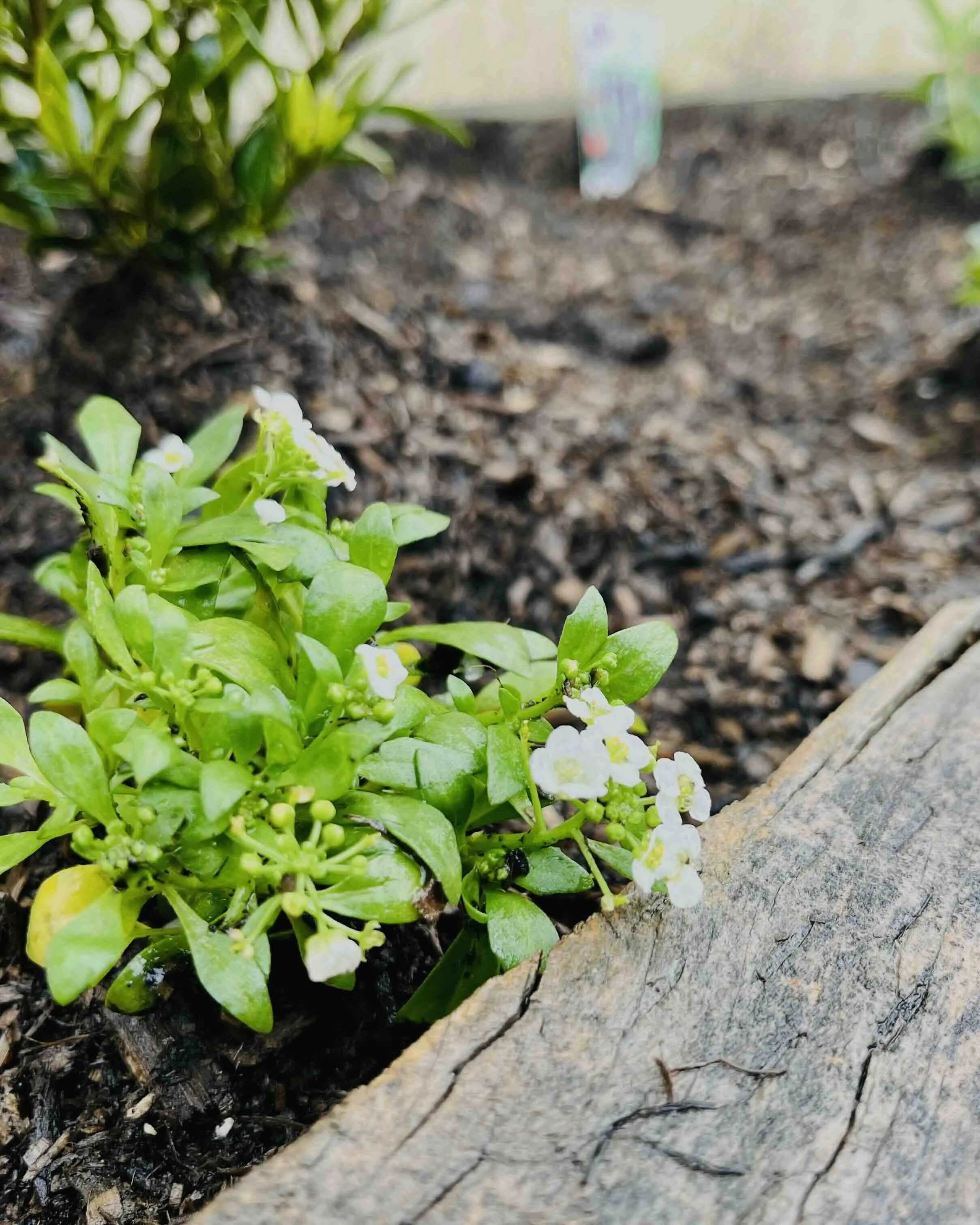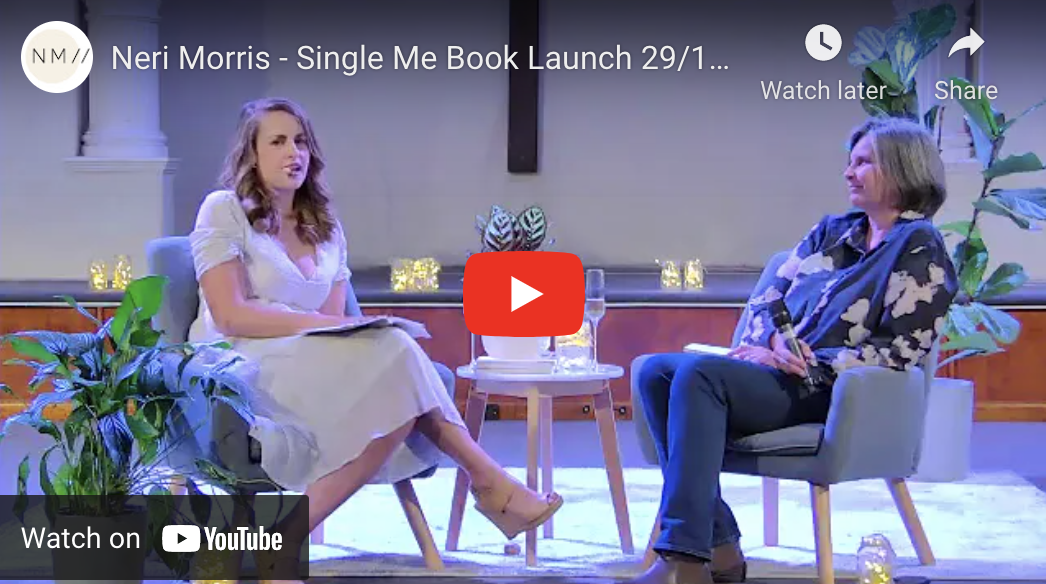
Planting in the Pouring Rain
The rain, however, had other plans and while on my way home from getting my haul, my husband called me to let me know it was pouring rain at the house. I thought for a second and boldly proclaimed to my husband “Stuff it! Linnea wouldn’t let something like the rain stop her from building a house, so it’s not going to stop me!” And it didn’t.

Desperately seeking Neri.
It has definitely been a while since I last posted something here. Life has been different these last few years from what it was when I started this website, when I started writing and trying to be intentional about that.
There have been some real highlights along the way (hello, I got married!) and there have been some plot twists I hadn’t anticipated.
I’m currently sitting in my backyard in Budgewoi, soaking up the momentary speckles of sunlight that break free from the blanket of clouds that scream of imminent rain, desperately seeking Neri.

Desire, Destination and a Next Step (part one)
I feel itchy.
Not the kind of itch that sits on your skin, annoyingly begging to be scratched. It’s the kind of itch that is present just enough to make you feel uncomfortable. It’s invisible, so scratching it is almost impossible. It’s uncomfortable enough to keep my attention, to keep me feeling discontent enough to not forget the itch. I long for it to be gone. To soothe the discontent. I just can’t seem to find the right salve. But I know the discontent is a symptom of the deeper dis-ease of desire. My soul is hungry for change. I just don’t know what change that is….

It's been awhile....
That’s an understatement.
Life has evolved and morphed in so many ways. Both good ways and challenging ways and I’ve been learning to settle in to a new norm, a new pattern, a new dynamic.

Single Me Book Launch
I LOVED this night! My first book launch and I was so blown away by all the support shown. I am so excited to continue this author journey! If you would like to purchase a copy of Single Me, head to nerimorris.com/books or check out your preferred eBook provider (or Amazon if you want a printed copy in the States!)

What do you do when you're disappointed with God?
But when that tipping point slipped back over into oblivion, my belief, my confidence, my dreams, and my faith slipped with it.
I had honestly thought things were changing, that the sacrifice was about to pay off and God was opening doors and moving us into a new season of influence for his kingdom. Instead, we were shoved back into oblivion.
And that shove took its toll.
What do you do when you’re disappointed with God?

The Archives: Seasons
Such is the way of the seasons. They are ushered in and enjoyed to the fullest and then quietly ushered out, hidden away until the curtain rises again for them to take the stage again. Because they each have an appointed time, a call time where they are required to grace us with their amazing ability to paint the world in different hues, like an expert artist can interpret and create their masterpiece.

The Archives: Patience
We so often think that the reason that dream or desire or promise hasn’t come to pass is because there’s something wrong with us, I’m not skilled enough, I’m not equipped enough, I’m not good enough when actual fact it’s not about what God is leading you to but what He wants to do in you. Too often we bring the focus back to ourselves and our inability instead of God’s ability.
There is any number of reasons that only the Lord knows as to why this desire of mine hasn’t been met. What it has resulted in thus far is an understanding of what it means to wait well. I don’t by any means have this down pat, I certainly have my days where waiting just sucks. Because waiting just sucks.
The challenge though has always been to wait well. How do you do that? How does someone actually wait well? How do you remain patient for those desires of your heart? Is there such a thing as being comfortable whilst you wait for the Lord to move or deliver on that desire?

The Best Walks in Sydney
I love exploring my backyard. It’s huge. It has some of the best walks around, from beaches to mountains and everything in between. I realise you don’t need yet another list of walks to do in Sydney but these are ones I’ve actually done (pics to prove it!) and I recommend if you are looking for something to do over the weekend.

Eternity News: Four Ways To Love Your Single Friends Better
I’ve had some amazing opportunities to share my book in a variety of interviews. So far, without fail, I am always asked what Churches and married people can do in order to support the single people in their world. It’s a valid question and I can understand why they’re asking it…

Lesson Three: Who am I to think I can get away with my disobedience effecting only me?
In really simple terms, my disobedience cost me more because the sandwich I purchased was $7 versus the cost of a coffee for $4. It cost me more because there were a number of people eating lunch close by when I went to give Graeme his sandwich who would have seen Graeme’s rejection of my offer, versus earlier in the morning no one being around (there’s also a lesson to be learned in doing things in secret for the glory of God versus in the open for the praise and adoration of men).

Single Me is not just for single people...
Despite its title, Single Me is not just for single people. It's also for our married friends and family who might not know how to support us. Here I share a little bit about how this book isn't just for single people. To purchase Single Me: Learning to Love the Unwanted Path of Singleness head to my website, Amazon or follow this link for other e-reader platforms like Apple and Kobo.

Lesson Two: Who am I to think I can improve on the execution of God’s plan?
God’s call or request is not a suggestion. It is not up for discussion. God doesn’t need your two cents. What God needs, is your action. Your willingness to go when He calls you. Your willingness to be interrupted. Your willingness to acknowledge your life is part of a greater narrative being worked out and your willingness to follow God’s call is critical to how God expresses His love in the world.

Lesson One: Who Am I To Think I can Improve The Timing Of God?
I naively (and unconsciously) thought that I could improve on the timing of God when in reality what I was doing was stalling. I was procrastinating. I held off because I had to check that Graeme was there. When in actual fact I wasn’t willing to allow God to disrupt me in that moment.

Why I Wrote Single Me...
I wanted to take some time, in light of the impending release of this book, to share with you why I wrote “Single Me.”

I found a Seashell
If you’ve clicked on this post, then you too must be an ocean lover because the title of this blog is not very compelling. But it’s important. It’s really important.

The Language of Lament - Part Two
I am drawn to the image of a God who, in all cases of lamenting, listened. He sat and listened. He waited and listened. He did not rush to heal. He did not rush to repair. He did not rush to reconcile. He listened to the lamenting. And so should we.

The Language of Lament - Part One.
Last night, the news headlines were all about the riots in Minnesota, the pain of the African American people, and the death of George Floyd. A google search this morning of “National Reconciliation Week” on the first few pages returns no results from any major News outlets here in Australia.
Instead, their websites are filled with news from America and I’m left wondering…
Why are the cries of America louder than the original custodians of the land we now call Australia?

Hey Single Girl, How'd You Go Yesterday?
Hey Single Girl,
How’d you go yesterday?
Was it as hard as you thought it would be?

Freedom Found In Restriction
Who would have thought that when freedom is restricted, the world actually thrives? Not us humans, that’s for sure. But I imagine God does, given it was the very thing he did to create the world. God himself had to contract in order to create space for the creation to exist. It’s a Hebrew term called Zimzum. A restriction or contraction of freedom in order for something else to thrive.
